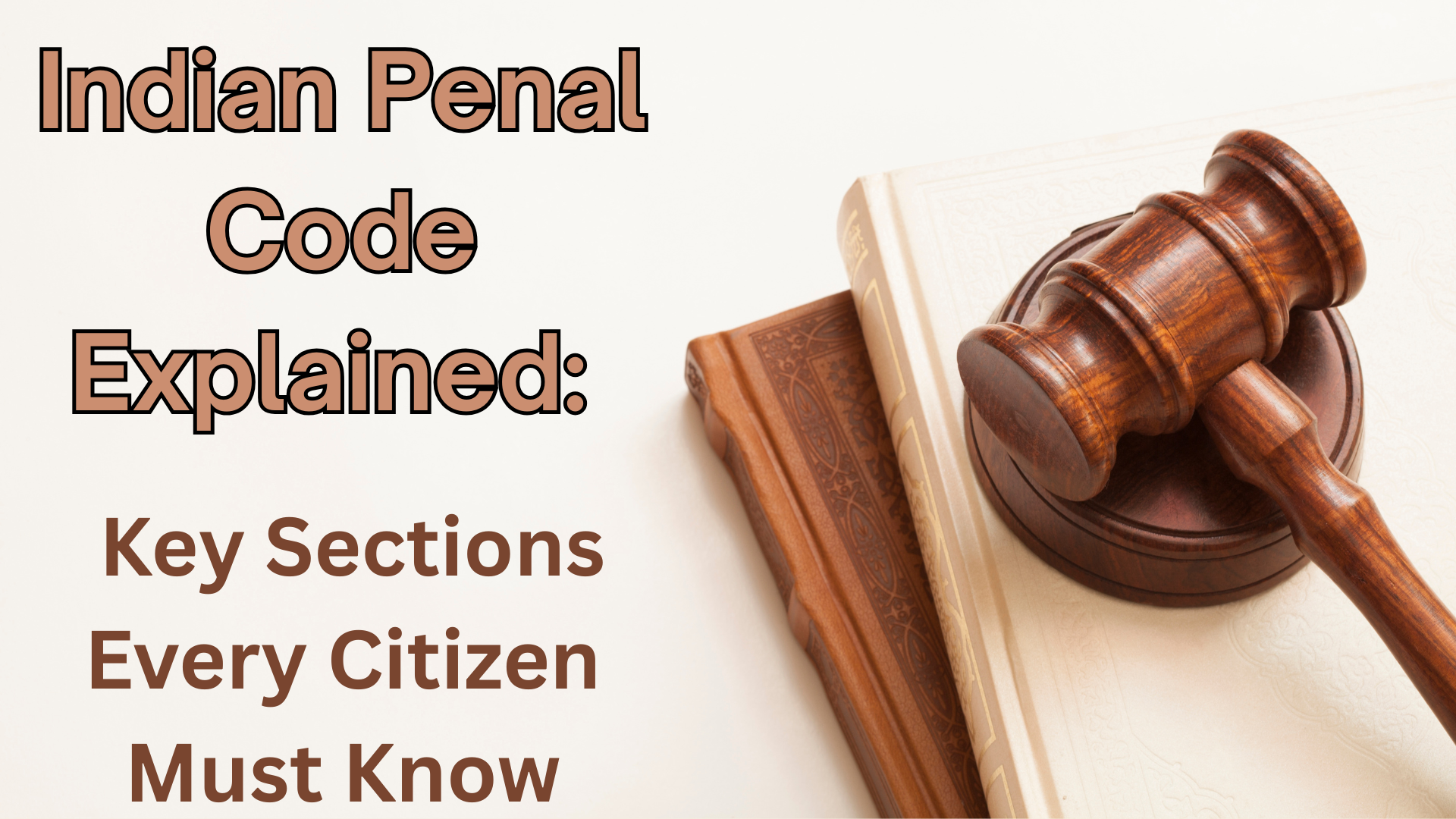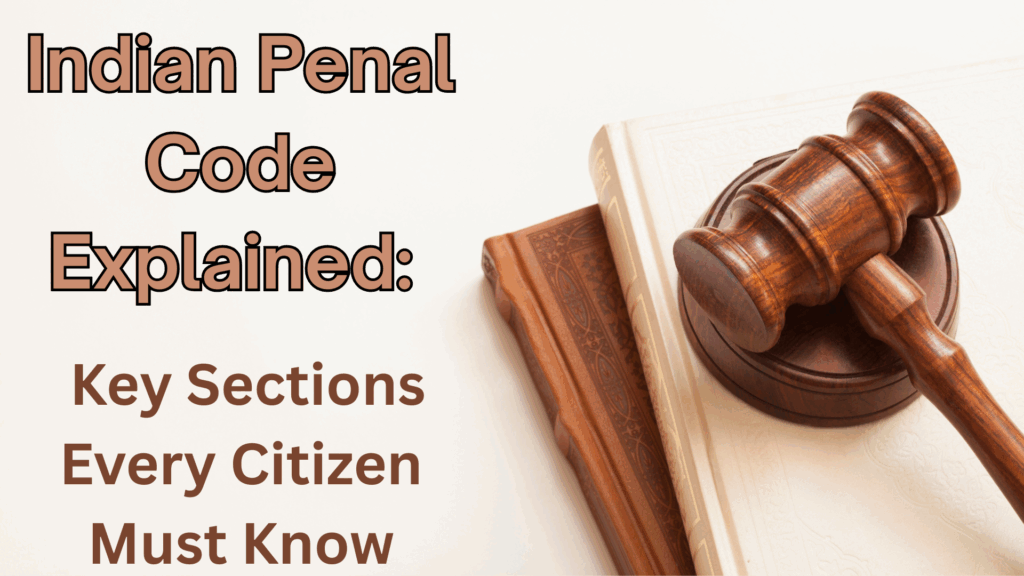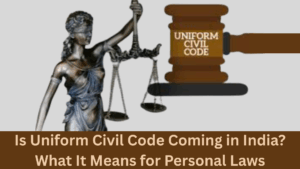In this post, we have got the Indian Penal Code Explained; key sections every citizen must know have been discussed here in detail.
Indian Penal Code Explained
The Indian Penal Code (IPC) is the most important part of India’s criminal legislation. This law was passed in 1860 while the British were in charge. It sets forth the definitions, penalties, and procedures for practically all crimes in the country. The IPC is still very important, even though it was written during colonial times. The Indian Penal Code undergoes constant changes to address contemporary issues. Key Sections Every Citizen Must Know include cybercrime, domestic abuse, and organized crime.
In today’s rapidly changing world, it’s necessary for all Indians, not just law students or professionals, to know the basics of significant parts of the IPC. Knowing important parts of the IPC can help people deal with legal issues effectively, whether they want to safeguard their rights or avoid breaking the law without meaning to.
This page gives a simple description of important IPC portions that everyone should know, as well as a table that makes it easier to find the information you need.
Why the Indian Penal Code Matters?
The IPC specifies what constitutes a criminal crime and sets penalties for the same. It applies evenly across India (excluding Jammu & Kashmir, which had its own criminal law until the abrogation of Article 370 in 2019). The IPC makes sure that:

- Law and order
- Protection of life and property
- Justice delivery in civil society
More Details: Get Here
Important IPC Sections That All Indians Should Know
| Section | Offence | Punishment | Explanation |
|---|---|---|---|
| Section 302 | Murder | Death or life imprisonment + fine | Intentional killing of a person |
| Section 307 | Attempt to murder | Up to 10 years or life + fine | Trying to kill someone but failing |
| Section 376 | Rape | 10 years to life imprisonment + fine | Sexual assault on a woman |
| Section 354 | Outraging modesty of a woman | 1–5 years + fine | Physical or verbal act that insults a woman’s dignity |
| Section 498A | Cruelty by husband or in-laws | Up to 3 years + fine | Harassment or abuse of a married woman |
| Section 420 | Cheating and dishonesty | Up to 7 years + fine | Fraudulent acts for personal gain |
| Section 375 | Definition of rape | — | Lists acts that constitute rape, with or without consent in certain circumstances |
| Section 124A | Sedition | Life imprisonment or up to 3 years + fine | Acts that incite hatred or disaffection against the state |
| Section 141 | Unlawful assembly | Up to 6 months + fine | A group of 5+ people with intent to commit a crime |
| Section 499 | Defamation | Up to 2 years + fine | False statement harming someone’s reputation |
New changes and reforms
The Criminal Law (Amendment) Act of 2013: After the Nirbhaya case, it changed the definition of rape to include stalking, voyeurism, and acid assaults as crimes.
Decriminalization of law 377: The Supreme Court partially knocked down this law in 2018, making it legal for adults to have consensual gay intercourse.
Proposed Bharatiya Nyaya Sanhita (BNS), 2023:The Indian government has suggested a complete overhaul of the IPC with new words, meanings, and procedures for modern offenses in the projected Bharatiya Nyaya Sanhita (BNS), 2023.
Practical Benefits of Knowing Key IPC Sections
- Know your rights: Don’t let false charges or exploitation happen to you.
- Civic Responsibility: Know what you have to do as a citizen and what will happen if you breach the law.
- Protection of Rights: If you know the right IPC provisions, you can get the law to work faster in circumstances of domestic violence, harassment, or fraud.
- Giving Power to Weak Groups: Teaching women, children, and people from disadvantaged groups about the rules against assault, cheating, and exploitation can help stop abuse.
Common Misunderstandings About IPC
- There are IPC offenses that are not bailable: There are several crimes that you may get out of jail for, such as defamation or public annoyance.
- Not knowing the law is not an excuse: If you say you didn’t realize anything was against the law, you won’t get off the hook.
- IPC isn’t just for attorneys; anybody may learn about it and use it when they file a FIR or go to court.
Conclusion
The Indian Penal Code is more than simply a set of laws; it protects your rights and duties as a citizen. It may seem like a lot to read the whole IPC, but knowing important parts like 302 (murder), 420 (cheating), 498A (domestic abuse), and 376 (rape) may be quite helpful in real life.
You don’t need a legal degree to understand the IPC. You only need to be willing to study how the law protects and keeps all Indians accountable. In a democracy, knowing the law is the first step toward safety, justice, and power.
Thanks a lot for spending your precious time in reading this post.





